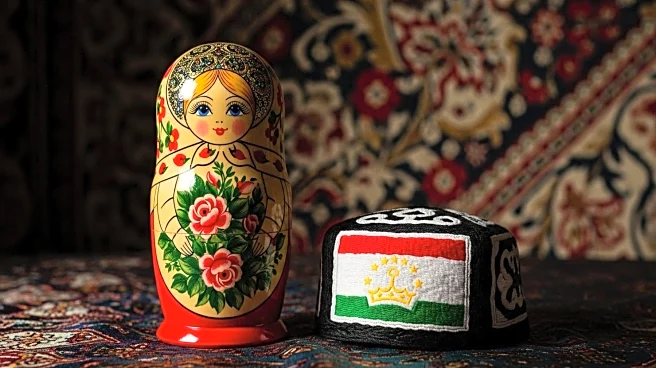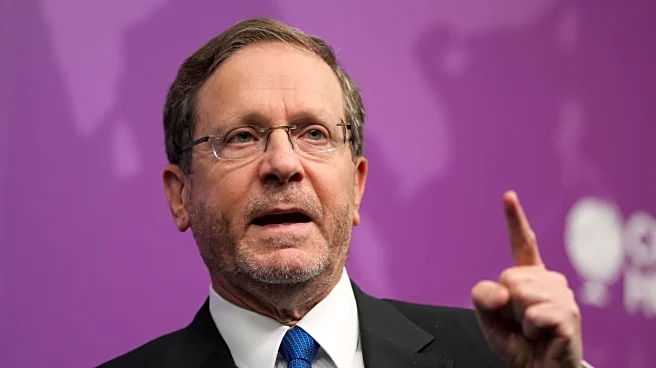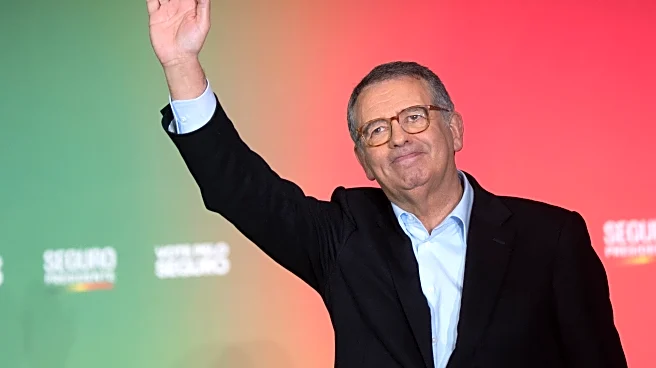What is the story about?
What's Happening?
Russian President Vladimir Putin has embarked on a state visit to Tajikistan, marking a significant diplomatic engagement with leaders from former Soviet states. This three-day visit includes meetings with Tajikistan's President Emomali Rakhmon and a Russia-Central Asia summit involving leaders from Kazakhstan, Kyrgyzstan, Turkmenistan, and Uzbekistan. The visit underscores the importance of trade and political ties with Central Asian countries for Russia, especially in light of the sweeping Western sanctions imposed due to its military actions in Ukraine. Despite an International Criminal Court (ICC) warrant for alleged war crimes, Putin faces no risk of arrest in Tajikistan, a country that maintains close ties with Russia.
Why It's Important?
This visit highlights Russia's strategic pivot towards strengthening alliances with Central Asian countries amidst increasing isolation from the West. The ICC warrant has limited Putin's international travel, making engagements with non-Western countries crucial for maintaining Russia's geopolitical influence. Tajikistan's decision not to arrest Putin, despite being an ICC member, reflects the complex interplay of international law and political alliances. This situation underscores the challenges faced by international bodies like the ICC in enforcing their mandates, particularly against powerful nations. The visit also emphasizes the ongoing geopolitical tensions and the realignment of global alliances.
What's Next?
The outcomes of the Russia-Central Asia summit could lead to enhanced economic and military cooperation between Russia and the Central Asian states. Observers will be watching for any new agreements or initiatives that may emerge from these discussions. Additionally, the broader meeting of the Commonwealth of Independent States may further solidify Russia's influence in the region. Human rights organizations, like Human Rights Watch, continue to call for accountability regarding Russia's actions in Ukraine, which may influence future diplomatic interactions.
Beyond the Headlines
The visit raises questions about the effectiveness of international legal mechanisms like the ICC in holding leaders accountable, especially when geopolitical interests are at stake. It also highlights the enduring influence of historical ties and regional dependencies in shaping current international relations. The situation in Tajikistan, with its long-standing leadership and strategic location, further complicates the regional dynamics, particularly concerning security and economic stability.
















